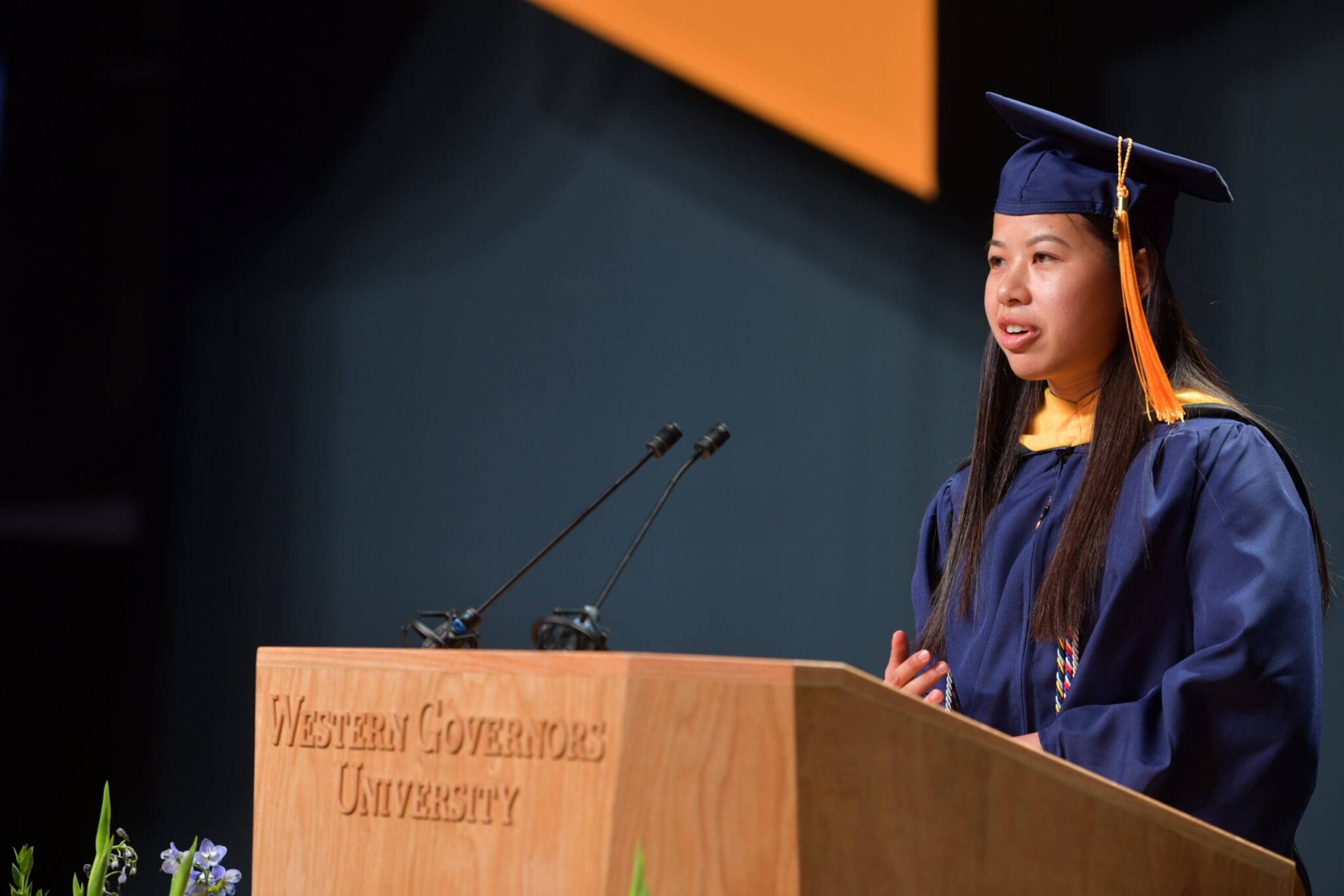Employment in information security is expected to grow by 33%, according to the Bureau of Labor Statistics — faster than the average of other fields. The White House convened stakeholders in August to create pathways for veterans and military spouses interested in those cyber careers.
The Office of the National Cyber Director said it is “committed to helping members of those military-connected communities to take full advantage of the Federal programs that are available to help them leverage their experience and skills for careers in the cyber workforce.” One Marine is doing just that by using military education benefits to gain a competitive edge.
Marine Corps Capt. Carly Donner, executive officer at Recruiting Station Salt Lake City, Utah, learned Marines from her Okinawa unit used their downtime to complete information technology certificates. The communications officer was competitively intrigued, she said.
“I’ve always had a STEM background,” Donner, who graduated from the Naval Academy in 2018, said. “I was definitely drawn to the communications field in the Marines, where I set up networks and dealt with ground satellite systems and servers. I like making things work.”
RELATED: Cyber Warrior training program helps vets get into IT careers
Donner enrolled in a graduate program at Western Governors University in a field with growing demand: cybersecurity.
“The cyber field is becoming ever more important, because all industries have a vested interest in having secure and smoothly functioning networks,” Donner said. “With the numerous systems and sites that the military uses, securing these systems has never been more important, especially with the rise of cyber attacks.”
The ONCD co-hosted the White House workshop with the Department of Labor’s Veterans’ Employment and Training Service.
“Service members, who defend our national infrastructure from cyber attacks, are uniquely positioned to fill and lead cybersecurity roles with their transferable skills refined while in uniform,” Honorable James D. Rodriguez, assistant secretary for the Department of Labor VETS, stated in a press release.
With a 50% travel schedule and an area of responsibility including some or all of Utah, Nevada, Idaho, Wyoming and Oregon, Donner leaned on WGU’s completely online program to meet that demand. She quickly learned to compartmentalize.
“I set certain times aside of, ‘This is my study time, so I’m putting my phone in the other room,’” she said. “It was really about focusing on whatever I had in the present, so I didn’t get confused with other priorities.”
Donner’s hard work paid off when WGU chose her as a commencement speaker for its 2024 ceremony.
“Working on my master’s renewed my motivation to stay in IT and the technology field while allowing me to visit my values and priorities,” she told graduates. “It made me realize that even when you have a thousand responsibilities and a wild schedule, anything is possible if you dedicate the time and effort.”
Though Donner isn’t currently in a cyber-related Marine career field, she sees plenty of future benefits from her graduate degree in her military job.
“By passing the Ethical Hacking certificate, which was part of the program, I renewed the expiration dates of other certificates I had, such as the Security+ certificate, thereby keeping me current and eligible to be an Information Systems Security Officer at whatever future unit I may be assigned,” she explained. “When I eventually transition to civilian life, having this degree will keep multiple career doors open in the cyber and technology fields.”
Plus, it’s an example to other recruiters of staying relevant in their MOS, she says.
“This degree helps keep me competitive for promotions by showing I have the initiative to pursue higher education that is relevant to the military,” Donner said.
Read comments










































